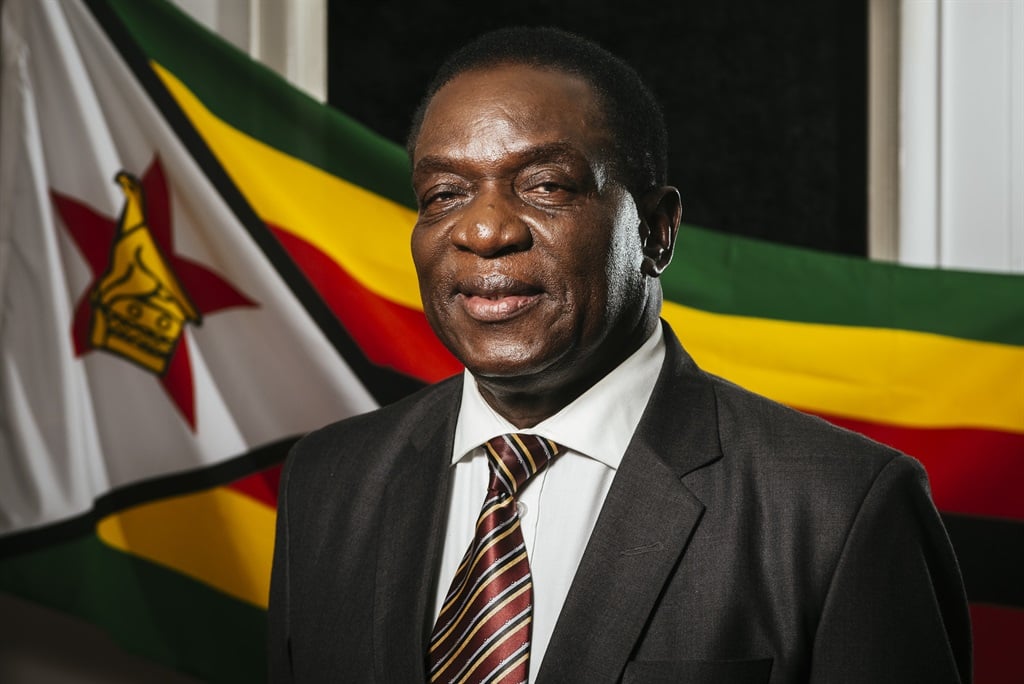Pressure is mounting on South Africa to play a role in finding solutions for Zimbabwe. But experts say Pretoria can intervene only diplomatically.
Harare is just starting to return to normality after the country was rocked by deadly protests over a large fuel price hike and is readying to re-introduce its own local currency again.
Zimbabwean companies suffered massive disruption to business and vandalisation of property when protesters turned violent and looted shops and other premises.
Choppies, the Botswana-founded regional grocer, which also has shops in South Africa, said this week it lost more than $2 million worth of goods in looted stock.
International relations and trade expert Levious Chiukira said Zimbabwe President Emmerson Mnangagwa’s austerity measures needed to be supported by conducive fiscal tools and incentives for business.
“As we continue to experience the austerity measures, the government of Zimbabwe needs to stimulate the economy with extensive fiscal tools. Focus should also be on trade, business incentives and consumer-centric policies,” said Chiukira.
Local companies first have to recover from the disruption of last week’s protests.
Read: Zollars, The crocodile and the crash crunch behind Zim's protests
A shutdown of the internet must have cost the country’s transaction value, said players in retail trade, because the country is heavily reliant on online payment platforms.
Ramachandran Ottapathu, group chief executive for Choppies, said this week that “during the stayaway disturbances, nine of our shops in Zimbabwe’s high-density areas were looted, with stock valued at about $2.5 million being forcibly taken away” by the demonstrators.
Other companies had to close down, although Implats spokesperson Johan Theron told City Press by email that mining operations at its Zimplats and Mimosa mines had not been affected.
The protests have put Zimbabwe’s economy sharply into focus, with more protests by government workers lined up from tomorrow.
Government workers, under the Civil Service Apex Council, declared their intention to strike this week after complaining about steep rises in the cost of living.
Zimbabwe’s inflation surged to 42% in December. Economists at NKC African Economics told City Press that Zimbabwe’s “economic outlook has deteriorated significantly” since the start of this year.
The fuel price hike, from $1.32 to $3.32, has worsened the plight of Zimbabweans who have suffered the knock-on effects of price increases in basic goods and commodities.
Zimbabwe had been suffering fuel shortages, resulting in lengthy fuel queues at filling stations and a thriving black market for fuel.
Mnangagwa said the fuel price hike was aimed at dealing with the fuel shortages. After the fuel price hike, supplies stabilised this week.
Finance Minister Mthuli Ncube and Mnangagwa spoke as one about the reforms instituted by the government, including increased taxes and tightening government expenditure.
“Calm and cool heads are needed now more than ever. Zimbabweans are growing increasingly desperate and frustrated, which could force the government to take desperate measures that may well just make matters worse.
“Harare desperately needs to see foreign investment flow into its borders and the government is aware of it,” Jee-Avan der Linde, an economist with NKC African Economics said.
However, foreign investment has been wilting.
Zimbabwe has appealed to – and been turned down by – South Africa for a financial bailout. Companies are containing their capital investments while others are limiting exposure to the country.
Investment experts say there is no chance Zimbabwe will get a bailout from South Africa in the short term.
Zimbabwe has turned to Russia and China for investments as Western countries increasingly shun investment in the country.
“There can be no external assistance until Zimbabwe’s government takes control of the situation and puts in step processes of accountability, transparency and democracy,” Gavin Serkin, an executive with Frontier Funds said.
According to NKC African Economics, South Africa is, however, “bound to confront its landlocked neighbour’s problems at some point” although it said “helping Zimbabwe to service some of its debt will provide only short-term relief and does not address the country’s underlying problem, which is the currency” issue.
Zimbabwe is using the quasi-currency bond note, introduced in 2016 after foreign currency units – used as legal tender in the country – dried up, translating to cash shortages at the banks.
“The currency crisis is creating havoc, crippling the sectors that are required to help create an economic turnaround.
“The government previously said it would consider reintroducing the Zimbabwean dollar only if foreign reserves stood at six months of imports,” other experts said.
“However, with only a couple of weeks’ worth of import cover and tremendous debt arrears, Zimbabwe hardly has the fundamentals in place to enact such a change.”
Zimbabwe’s administration, however, insists that the Zimbabwe dollar, abandoned in 2009 after record hyperinflation, will be reintroduced within the next 12 months.
Mnangagwa’s administration has drawn lines in the sand, refusing todollarise the economy or to rope in the rand.
Although South Africa is seen as better positioned to act on Zimbabwe through financial and diplomatic cajoling, President Cyril Ramaphosa’s government is battling economic headwinds “due to its slow economic growth, stagnant fixed investment, weak manufactured goods exports, concerns over the sustainability of government spending and high government debt levels”, said Van der Linde.
Other issues hobbling South Africa include “governance issues at state-owned enterprises and uncertainties regarding the proposed policy of land expropriation without compensation” and this makes any potential financial bailout far-fetched, said economists.
“We’re unlikely to see material financial support from South Africa beyond diplomatic efforts to use what influence it has within international institutions,”Serkin said.




 Publications
Publications
 Partners
Partners









